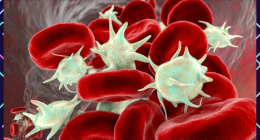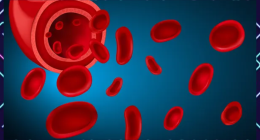Did Jeff Bagwell Adopt A Daughter? Jeff Bagwell, a four-time MLB All-Star, played for the Houston Astros for the duration of his entire 15-year career.
In 1991, he was named NL Rookie of the Year, and in 1994, he was NL MVP. Throughout his career, he hit.297 with 449 home runs, and in 2017 he was inducted into the Baseball Hall of Fame. Jeff Bagwell, born on May 27, 1968, is a native of Boston, Massachusetts. Jeff Bagwell will be 54 years old in 2022. Bagwell said he doesn’t like being in the spotlight for too long afterward. Longtime friend and ex-teammate Brad Ausmus paid tribute to him during the retirement ceremony for his uniform number.
| Famous Name | Jeffrey Bagwell |
| Father | Robert Bagwell |
| Mother | Janice Bagwell |
| Birth Name | Jeffrey Robert Bagwell |
| Net Worth | $65 million |
Did Jeff Bagwell Adopt A Daughter? Kids With Wife Rachel Bagwell
Baseball star Jeff Bagwell has yet to have a daughter. He and his wife have a couple of sons in the family.
Bagwell has had three marriages. With his third wife and girlfriend, Rachel Bagwell, he has five children in total. Rachel had three children before meeting Jeff. Jeff had two daughters, Blake and Bryce, with his first wife, Shaune Bagwell, whom he married in 1992, before marrying Rachel. After filing for divorce from his first wife, he married Ericka Bagwell. His two daughters were born to him by his second ex-wife.

Similarly, Rachel was previously married to Dr. Michael Brown, the owner and founder of Brown Hand Centre and a hand surgeon in the Greater Houston area. The union of the Browns resulted in the birth of two children. In reality, Bagwell has kept his personal life private. On social media platforms such as Twitter, Instagram, and Facebook, he appears to be inactive.
The player has five children from all of his wives; the adoption of a new daughter is most likely still a rumor. Despite the fact that two of his marriages were not stable, he is now living a happy life with Rachel.
Jeff Bagwell Net Worth
Jeff Bagwell, a well-known American baseball player and coach, has a net worth of $65 million.
He played first base for the Houston Astros during his Major League Baseball career. He was drafted by the Red Sox in the fourth round of the 1989 draft before being traded. The trade was remembered as one of the worst in Red Sox history, second only to the trade of Babe Ruth to the New York Yankees in terms of the team’s demise. In 1994, he was named the National League’s Most Valuable Player.
Bagwell found his footing with the Houston Astros and quickly rose to the status of one of the team’s most beloved players. Bagwell spent his entire 15-year career with the Astros. He was a standout performer, hitting at least 30 home runs in each of his nine seasons. Bagwell, on the other hand, struggled with health issues and was diagnosed with arthritis after the 2005 season. As a result, his performance suffered in the end. Bagwell showed tenacity by attending every day of spring training games in the hopes of overcoming his ailments.
However, it proved to be too difficult to climb. He retired from professional baseball in 2006. In 2010, he was hired as a hitting coach by the Astros. He has lived a lavish lifestyle with his wife and children throughout his career. His devoted career has made him one of the most prosperous players. He has done numerous brand endorsements and has been compensated for them, which has contributed to his successful career.
From 1992 to 2005, Bagwell earned approximately $108,765,000 while playing for the Houston Astros.
Jeff Bagwell Was A Dominant Player
Jeff Bagwell was a dominant player in the National League for the majority of his 15-year career.
In eight of his seasons, he scored more than 100 runs. He had nine seasons in which he hit at least 31 home runs and scored at least 100 runs. He received unanimous support for the Most Valuable Player award in 1994. Despite these and other accomplishments, Bagwell’s career was marred by controversy because he played during the era of illegal drugs, whether that timing was appropriate or not.
Many people believed that this issue played a significant role in his six-year delay in being inducted into the Hall of Fame. Bagwell’s reputation appeared to be built on the concept of inductive reasoning expressed by the proverb, “It’s probably a duck if it quacks like a duck, swims like a duck, and looks like a duck,” despite the fact that conclusive evidence of his use of illegal drugs never materialized. His induction into the Hall of Fame in 2017 helped to dispel some of the negative press he had received.
Bagwell attended Xavier High School in Middletown, Connecticut, but his favorite sport was soccer. Despite his soccer background, he attended the University of Hartford on a baseball scholarship and trained under Bill Denehy. Denehy, a former major league pitcher, quickly recognized Bagwell’s potential and transformed him into a third baseman who quickly rose to the top of the team.
He batted.310 for the Class A Winter Haven Red Sox of the Florida State League. He displayed little of his future power, hitting only two home runs. Despite this, he was promoted to New Britain, the Red Sox Class AA team in the Eastern League, for his performance. Bagwell hit.333 to win the batting title and the league MVP award. Again, with only four home runs in a season, he showed little power.
As the 1990 season came to a close, Boston desperately needed bullpen help after their best reliever, Jeff Reardon, underwent surgery and was sidelined for several weeks. For Boston to “win now,” Gorman believed he could fill a gaping hole without making a significant sacrifice.
Bagwell offered his opinion on the trade five years later. “The Red Sox were competing for the pennant.
While Bagwell’s credentials were called into question for years, his teammates’ feelings about him were never in doubt. Bagwell was once referred to as “the ultimate teammate” by Astros pitcher Mike Hampton in an interview. Bagwell and Biggio made it clear that the Astros did things in a certain way. Bagwell and Biggio took the approach of insisting on accountability, beginning with themselves. Bagwell was quick to deny credit for his accomplishments by saying, “That’s my job,” and he was frequently willing to accept blame for failures that were not even his fault. His ability to connect with teammates was not limited by race or other factors.




